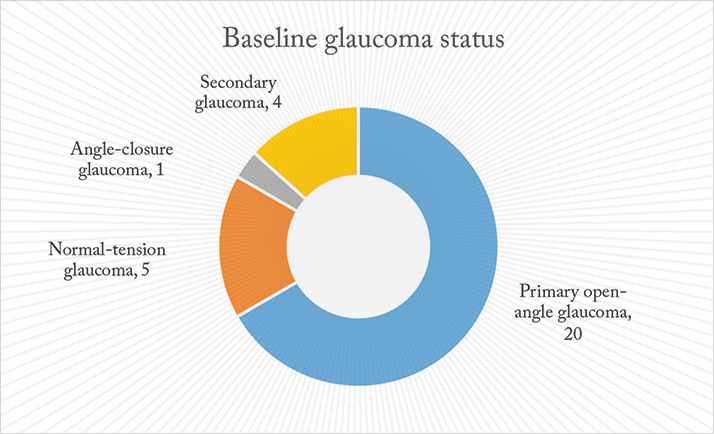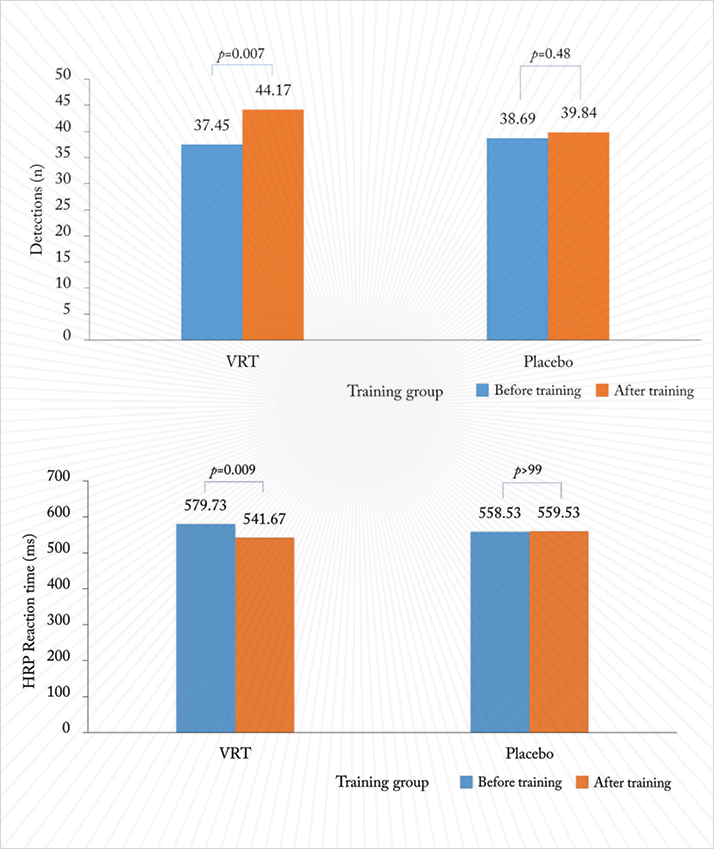
Glaucoma is not just chronically elevated intraocular pressure levels; it’s also a pernicious neurodegenerative disease. The death of retinal ganglion cells, structural changes at the optic nerve head and optic nerve lesions are all features of the disease. And it doesn’t necessarily stop there: optic nerve head damage can beget further degeneration in the retina, and onwards into the brain (1).
However, vision loss in glaucoma may be reversible, according to Berhnard Sabel and Julia Gudlin, researchers at the University of Magdeburg in Germany. They performed a randomized, prospective, double-blind clinical trial of thirty patients with glaucoma, who were assigned to receive either glaucoma vision restoration training (VRT) or placebo. The baseline glaucoma status of the entire group is shown in Figure 1. Sabel and Gudlin used computer-based high-resolution perimetry (HRP) before training began, to measure the patients’ natural visual field variability. An eye tracker was used during HRP to determine fixation stability.
The VRT involved a computerized luminance increment stimulus system; patients responded to visual stimuli by pressing a spacebar. Placebo VRT used a different protocol – a line segment bar was presented in one of four random orientations; patients were instructed to press a key when the bar was seen. Training was provided for a 30 minute period, twice a day, for three months.
VRT was associated with significant improvements in HRP detection rates and reaction times; placebo-training was not (Figure 2). Sabel and Gudlin also measured detection changes in the untrained eyes as a control for the experiment, and found no significant changes for either treatment group. VRT training was also associated with improvements in white-on-white and blue-on-yellow perimetry visual
field tests.

Although the patient numbers in this trial were small, and the mechanism(s)remain undetermined, it looks likely that the brain is exhibiting plasticity in its visual system in response to the VRT to make best use of the visual signal it receives. Whether these improvements are clinically significant and whether patients will comply with an hour-a-day visual training system remains to be seen, but it does show that glaucoma is not totally a story of declining vision after all.
References
- E.E. Chang, J.L. Goldberg, "Glaucoma 2.0: Neuroprotection, Neuroregeneration, Neuroenhancement", Ophthalmology, 119, 979-986 (2012). B.A. Sabel, J .Gudlin, “Vision Restoration Training for Glaucoma: A Randomized Clinical Trial”, JAMA Ophthalmol., (2014). Epub ahead of print, doi: 10.1001/jamaophthalmol.2013.7963.
